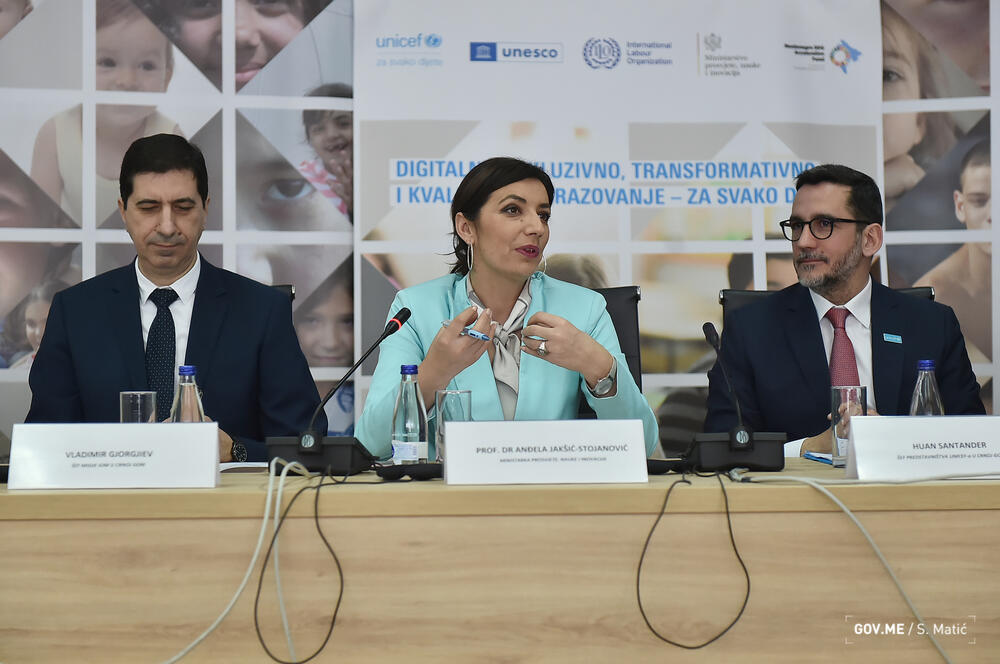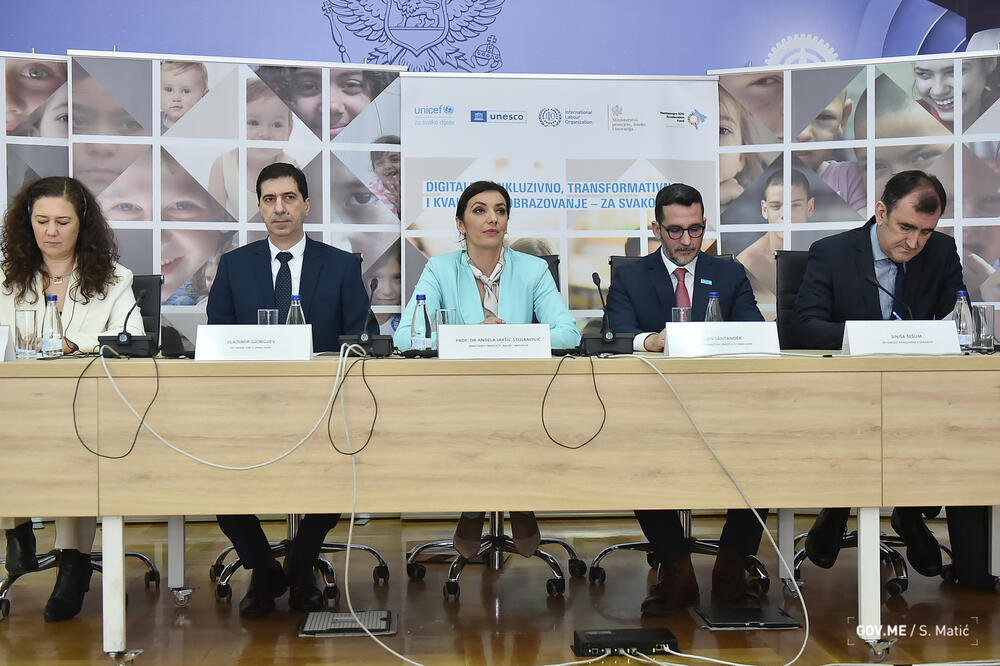The project entitled Digital, inclusive and transformative: Quality education, which will last two years, will be implemented in 12 schools from the north of Montenegro, and will include over six thousand children and adolescents and more than 300 teachers and ICT coordinators.
The project, implemented by the Ministry of Education, Science and Innovation, UNICEF, UNESCO and the International Labor Organization (ILO), with the financial support of the Fund for the Accelerated Development of Montenegro, was officially presented today in the premises of the Ministry.
The Ministry said that the project plans to create digital content that will be an integral part of the Digital School concept, which the department developed in the previous period with UNICEF.
As they stated, the training of teachers and ICT coordinators, the equipping and launching of EdTech hubs, as well as the organization of digital summer camps for students, will be organized.
"The project will be implemented in 12 schools from six municipalities in the north of Montenegro, it will include over six thousand children and adolescents and more than 300 teachers and ICT coordinators, and it will last two years," the announcement says.

It is added that the value of the project is 500 thousand dollars.
The Minister of Education, Science and Innovation Anđela Jakšič Stojanović said that the digital environment has become the natural environment of children and young people, and that the task is to make the school an environment that strongly supports the development of digital and other, related to them, in accordance with the goals of education and upbringing. competence.
"With the strategy for the digitization of the education system, we have set ourselves an ambitious plan and we will be persistent in implementing it," said Jakšić Stojanović.
As she stated, the project is in accordance with the Strategy and is very important for the development and improvement of the digital skills of students and teachers.
"It is especially important for us to establish EdTech hubs in educational institutions that will bring children together and give them opportunities to improve their digital skills," said Jakšić Stojanović.
She said that it is of particular importance to them to encourage and support children who show interest in information and communication technologies.
"If we start from the fact that these are occupations that are in short supply today, and that without sufficient human resources in the field of information and communication technologies we cannot implement the digital revolution neither in the education system nor in other departments, we come to the conclusion that the education system in the process of digital transformation has key role", said Jakšić Stojanović.
She emphasized that the relevant Ministry, apart from the computer equipment provided to schools, will work intensively on creating digital content that will improve the educational process and provide enough resources for the modernization of teaching and school work.
The head of the UNICEF representative office in Montenegro, Juan Santander, said that in order for the digital revolution to happen in schools, it is necessary to provide teachers with training in digital pedagogy, as well as to equip classrooms with new technologies, which will enable children to acquire digital skills.
He said that the goal of this initiative is to solve the challenges brought by the digital revolution by creating opportunities for more than six girls and boys in the poorest, northern region of Montenegro to develop digital skills in schools every day.
"A better quality of education for these children will bring them better jobs in the 21st century and help them break the cycle of poverty," Santander said.
The head of the UNESCO office in Sarajevo, Siniša Šešum, said that from UNESCO's perspective, quality and inclusive education is the cornerstone of social progress.
"And its integration with digital technologies is essential for encouraging equal and sustainable development, which is also our joint responsibility for future generations," added Šešum.
Specialist for skills development and employability at the ILO, Alessandra Molz stated that in the time of multiple and rapid changes, this organization defines education and skills as the most important means by which people can manage the digital transformation.
The Resident Coordinator of the United Nations in Montenegro, Vladimir Gjorgjiev, emphasized the importance of joint projects through which UN agencies coordinately provide technical and expert support to the Government in achieving systemic results.
Bonus video:




